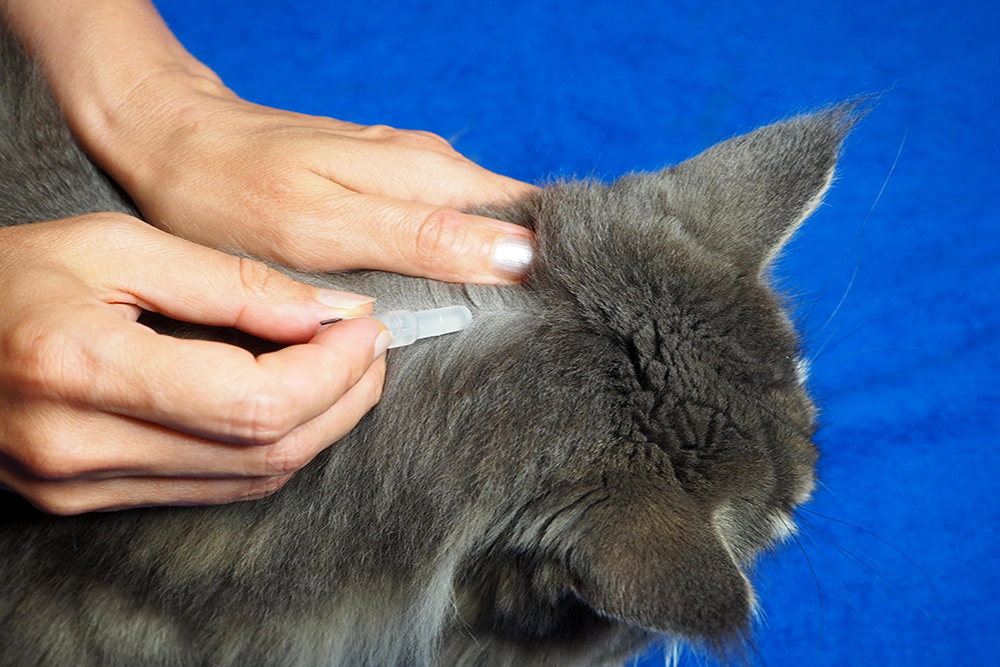The Complete Guide to Pet Parasites: Prevention Strategies for Year-Round Protection
Parasites are more than a seasonal annoyance—they’re a year-round threat to your pet’s health, especially in warm, humid climates like Palm City, Florida, where fleas, ticks, and mosquitoes never really go dormant. These pests don’t just irritate your pets; they can cause severe illness, discomfort, and even pose risks to human health.
At Palm City Animal Medical Center, we take parasite prevention seriously. Our veterinary team provides year-round prevention strategies, diagnostic testing, and tailored treatment plans to keep your dog or cat safe. Contact us today to schedule a visit or update your pet’s parasite prevention.
Why Year-Round Parasite Prevention Is Essential in Palm City, FL
Due to Florida’s subtropical climate, parasites thrive all year long. Fleas survive indoors during cooler months, ticks are active in mild winter temperatures, and mosquitoes—responsible for spreading heartworm—can breed in even the smallest standing water.
As outlined by the American Animal Hospital Association (AAHA), continuous, year-round prevention is the best way to reduce infection risks and avoid long-term complications.
Common Parasites That Threaten Pets
Fleas
These tiny insects feed on blood and reproduce rapidly. A single flea can lay up to 50 eggs a day, infesting your pet and home.
- Symptoms: Intense itching, hair loss, scabs, and “flea dirt.”
- Risks: Flea allergy dermatitis, tapeworm transmission, anemia—especially in small pets or puppies/kittens.
For more on flea-related skin reactions, see the Merck Veterinary Manual.
Ticks
Ticks attach and feed on blood, transmitting dangerous diseases.
- Diseases Spread: Lyme disease, Ehrlichiosis, and Rocky Mountain spotted fever.
- Symptoms: Lameness, joint swelling, fever, and lethargy.
Check your pet after walks and consult the CDC’s tick prevention guide for tips.
Heartworms
Mosquito-borne heartworms live in the heart and lungs, causing irreversible damage.
- Symptoms: Persistent coughing, fatigue, exercise intolerance.
- Prevention: Monthly preventives or annual injectable options. Testing is vital, even for protected pets.
Intestinal Parasites
Nearly all puppies and kittens are born with or acquire intestinal worms—so don’t be surprised if your young pet tests positive early in life.
Types:
- Roundworms – Can cause vomiting, diarrhea, and distended bellies.
- Hookworms – Lead to bloody stool and anemia.
- Whipworms – Trigger chronic diarrhea and weight loss.
- Tapeworms – Transmitted via fleas; may appear like rice grains in stool.
- Giardia – A microscopic parasite that causes greasy or watery diarrhea.
- Coccidia – Another protozoan parasite common in puppies and shelter pets, causing persistent diarrhea.
Learn more from the AVMA on intestinal parasites.
Mites, Lice & Other External Parasites
- Ear Mites: Common in kittens; cause scratching, dark discharge, and head shaking.
- Sarcoptic Mange (Scabies): Contagious mites causing severe itchiness and hair loss—also transmissible to humans.
- Demodex: A non-contagious mite that causes patchy hair loss, especially in young or immunocompromised pets.
- Lice: Rare, but can cause itching and coat damage in neglected animals.
Prompt diagnosis and vet-prescribed treatments are key to managing these pests.
Zoonotic Parasites: Protecting People, Too
Some parasites don’t just affect pets—they can infect people, especially young children, the elderly, or immunocompromised individuals. Roundworms, hookworms, giardia, and mange mites are zoonotic, meaning they can cross species. This makes parasite prevention not just a pet care issue—but a public health concern as well.
Prevention Strategies: Tools and Tactics That Work
Veterinary-Approved Preventive Products
- Topical medications: Guard against fleas, ticks, and mites when applied monthly.
- Oral preventives: Provide internal protection for heartworms and intestinal parasites.
- Injectables: Convenient heartworm options that last 6–12 months.
- Flea and tick collars: Long-lasting but must be used correctly to be effective.
Your veterinarian can recommend the best combination based on your pet’s age, lifestyle, and health status.
How Parasites Are Diagnosed and Treated
- Physical Exams: Skin checks for fleas, mites, or ticks.
- Fecal Testing: Identifies intestinal parasites or protozoa like coccidia and giardia.
- Bloodwork: Used for diagnosing heartworm and tick-borne infections.
Treatments are specific to the parasite type and may include oral dewormers, topical solutions, antibiotics, or anti-parasitic injections.
Environmental Control: A Crucial Part of Prevention
Indoors
- Vacuum frequently and dispose of vacuum bags promptly.
- Wash bedding and soft toys in hot water.
- Use vet-recommended sprays to control home infestations.
Outdoors
- Mow grass regularly and remove leaf litter.
- Eliminate standing water to deter mosquito breeding.
- Fence off areas to reduce wildlife exposure, which may bring parasites into your yard.
When to Call the Vet
Contact Palm City Animal Medical Center if you notice:
- Worms in your pet’s stool
- Persistent diarrhea or vomiting
- Hair loss, raw skin, or constant scratching
- Coughing, exercise intolerance, or signs of anemia
- A sudden flea or tick infestation
Schedule an exam today if your pet is due for a fecal test, heartworm screening, or prevention refill.
Prevention Saves Lives
In Palm City, parasite prevention isn’t seasonal—it’s a year-round commitment. Our warm climate, high humidity, and abundance of mosquito activity make it essential to keep pets on consistent, vet-approved preventives and to monitor them for early signs of infection.
At Palm City Animal Medical Center, we’re here to help you every step of the way. From newborn puppies and kittens to senior pets, we tailor parasite prevention plans that protect your pets—and your household.
Contact us to schedule an exam or discuss which prevention products are right for your pet.

Further Resources








Leave A Comment